Exclusive interview with President Pescovitz on enrollment, East Campus and more
The Oakland Post sat down with President Ora Pescovitz on Thursday, Nov. 17 for her first formal interview with The Post since the beginning of the fall semester. Pescovitz discussed her priorities for Oakland University’s financial planning, enrollment, East Campus development and more.
This interview has been edited and condensed for clarity.
The Oakland Post: We’re all aware that declining enrollment is affecting Oakland University’s financial planning.
The decline in enrollment seems to be a direct result of the pandemic and a shrinking pool of high school graduates. The number of college-bound students is decreasing nationwide, which adds to the enrollment problem.
What is OU’s plan to attract its share of this pool of students, increase recruiting and retain students until graduation while maintaining high admission standards?
Pescovitz: I think there are three major factors that are impacting enrollment, and it’s actually a national problem. The meeting I said I was just coming back from is the meeting of one of the organizations we belong to that’s called AASCU, the American Association of State Colleges and Universities, which basically educates about a third or more of the college students in America.
The problem is really national. All these university presidents were basically experiencing the same thing that we’re experiencing.
I think that the decline in enrollment is due to really three factors. One of them is a demographic problem, a decline in high school students. It’s particularly acute in Michigan. The second is COVID, and the third, which you didn’t mention, but I think it’s important to mention, is essentially an anti-college sentiment. And I think that that’s something that we have to really address, where people are saying, ‘do I really need to go to college? Can I get by in life without college? Can I get a good job without college?’ So all three of those are factors that have been impacting enrollment pretty seriously.
Until 2017, Oakland was one of the 15 public universities in Michigan that was seeing the most rapid increase in enrollment. It was very, very substantive. In the last few years, we have seen a decline. Our decline is less than most of the other universities in Michigan, and one of the things I learned at this meeting is it’s less than many of our other peers that are in our peer group nationally, as well. So it’s important to put it in perspective. It’s significant, but it isn’t as severe as some of those others.
Secondly, it’s important to note that it appears that our enrollment is now stabilizing. And I say that because when we look at our enrollment for spring, summer and fall, the numbers are actually improving, and they actually, right now, appear to be beating even our projections. I don’t think we’re out of the woods, and I don’t think we can let our hair down in terms of our concerns, but our application numbers are significantly up.
It’s also important to note that one of the areas that we target is transfer students from community colleges and from other universities. We’ve either been number one or tied for number one for transferring students from community colleges or from other universities. We’re a very desirable place, and we continue to focus on that because we really believe that it’s fine for students who aren’t prepared to start a four-year university to start at a community college and then to transfer.
The Oakland Post: Currently, Oakland has the lowest per-student appropriation among Michigan’s 15 public universities. As there is no particular formula used to determine how much a particular university will receive for each student, politics and goals of the state come into play.
At the Oct. 6 Board of Trustees (BOT) meeting, you presented information from a Detroit News article on Michigan’s “brain drain” which revealed that many Michigan college students leave the state after graduating. This report disclosed positive news for OU, however, as 86.38% of OU graduates remain in Michigan’s workforce.
What plans do you have to petition the state to increase the per-student appropriation for the university? Is this retention a contributing factor? Is there anything students or alumni of the university can do to help rectify the situation?
Pescovitz: Oakland is the number one — I call it “brain gain” institution, because we maintain or retain the largest number of the largest percent of our students in the state. It’s why I like to talk about us as not only the university of choice, but as the workforce university of choice. The reason I’m using that term is because our students, when they graduate, go into the Michigan workforce and they don’t leave the state. We retain the majority of our students — not just the majority, the vast majority of our students. We retain them in the Southeast Michigan workforce. And so we’re very, very proud of that.
I am really, really proud, not proud of the fact that we’re the lowest funded, but I’m very proud of our initiatives and our efforts in that regard. It’s been a huge initiative of mine. We call it “Strive for 45.” We started this initiative just before COVID. I wish we had better timing because we got a little bit waylaid during the COVID pandemic, but the great news is that we’ve got a huge amount of traction for this and the way it was manifested.
During this most recent legislative cycle, the average university got funded by the state for basic line state appropriations.
The average university got 3.3% funding from the state. Oakland got 12.5%. That was because the state built in the first part of what we requested in base funding for basically the part that we called Strive for 45. That’s what we call floor funding. Now, it didn’t bring us all the way up to the others. We’re still the lowest funded, but it is the beginning of what we requested.
Now we have to work really, really hard, and students can really contribute to this — as can faculty, staff, supporters and others — to help us advocate for the rest of that floor funding, because we’re not yet at $4,500 per student. The plan was to have that happen over three years. So we got the first third of it in this first year, and now we hope to get the second 3rd this coming year and the third 3rd over the next year.
It’s very, very important for us to continue to do that legislative work and advocate for it. I am optimistic because I hope that the current election has brought people on board who are supportive of higher education.
The Oakland Post: The Post has received several letters to the editor from students, faculty and community members regarding their concerns about the university’s commitment to sustainability and the potential development of East Campus into a commercialized space. The October Sustainability Awareness Rally was met with peaceful protests against the development, and an OUSC petition citing concerns over traffic, sustainability and safety has over 3,000 signatures.
It appears that a significant portion of the OU community is against this plan. Is the university and the BOT taking this negative feedback into consideration? What are the benefits of pursuing this plan that make the case to pursue the development, even with the pushback?
Pescovitz: This is an initiative of the Board of Trustees. It’s something that actually predates my arrival. It’s something that the board has talked about for actually more than 30 years.
It’s an area that’s a very valuable piece of land, and the board feels an obligation to consider what we do with any of our resources. That’s our obligation to always consider: Are we always doing the best that we can do with any resource that we have?
They’ve contemplated for decades whether or not we make the best utilization of all of our resources. They’ve entertained that corner for possible development for a very long period of time.
From my perspective, I think that it is my responsibility to wait and see what the proposals are that come in. I have not weighed in on it at all. I’m a scientist. I’m an evidence-based person. I don’t really think that it’s appropriate to decide that it’s not sustainable or that it’s going to impede traffic, or that it’s going to be unsafe, or that it’s not going to be helpful to the university when I don’t have the foggiest idea of what’s been proposed.
What I do know is that one of the commitments of the board is to solicit proposals that are consistent with the mission, vision, values and goals of the institution and/or that would generate revenue for the institution that can be used to support the mission, vision, values and goals of the institution. So what I think is very important is that we wait and see what the proposals are and see whether or not they are beneficial to the institution.
For me, and I was asked by several students if I would [sign] the petition, I said no, because I need to see their proposal. As an evidence-based person who’s grown up with a science background, I would never weigh in on anything until I saw the data. That’s where I am with it, and that’s what I would encourage everybody else to do, too. That’s where I sit with it.
If it can benefit us, we should see. And I think that there’s been a very thorough process today to try to look at exactly that. Could it be beneficial? If it isn’t beneficial, then it’s reasonable to object. But I don’t know why someone would object before, you know, what’s actually being proposed.
I’m supportive of the process, but I’m not supportive of a particular proposal because I haven’t seen a proposal.
The Oakland Post: I know you’ve spoken before about how important your Jewish values are to you and how they’ve shaped you. As the second Jewish president of the university, what are your thoughts on the recent rise in antisemitism and why is it important to stand up against it?
Pescovitz: I am very concerned about antisemitism on college campuses. This is not a random issue. It is pervasive. And I worry about hate becoming more permissible across the entire country.
This hate speech is not free speech, and we have to be able to differentiate between free speech and hate speech. They are not one and the same. We should not tolerate any form of hate speech. And a particular form of hate speech is antisemitism. It is one of the most dangerous forms of hate speech. And it’s not just in the form of speech. There have been actual antisemitic acts against people everywhere, but in particular on college campuses. And I am very, very concerned about it.
I am aware of a few incidents here at Oakland — not nearly as many as there have been on other campuses, but it worries me greatly, the fact that it’s occurring in colleges, because I am aware of Jewish students who’ve been afraid to admit that they’re Jewish for fear that they might be discriminated against in some way. And it is very, very concerning to me.
I am openly Jewish. I’m very proud of my identity and my affiliation. I would want any Jewish students on our campus to feel comfortable talking to me about their identity. It is something that we as a campus need to speak openly about.
I would hope that we will have some more open dialogue about this. I’d like us to be a leader in this. We’ve been a leader in Oakland on tolerance. We’ve been a leader in diversity, equity and inclusion. And when we see this kind of thing — hate and people not being respected — we have to speak out about it. I would like to see us take the lead on this and be open to any thoughts that students might have.



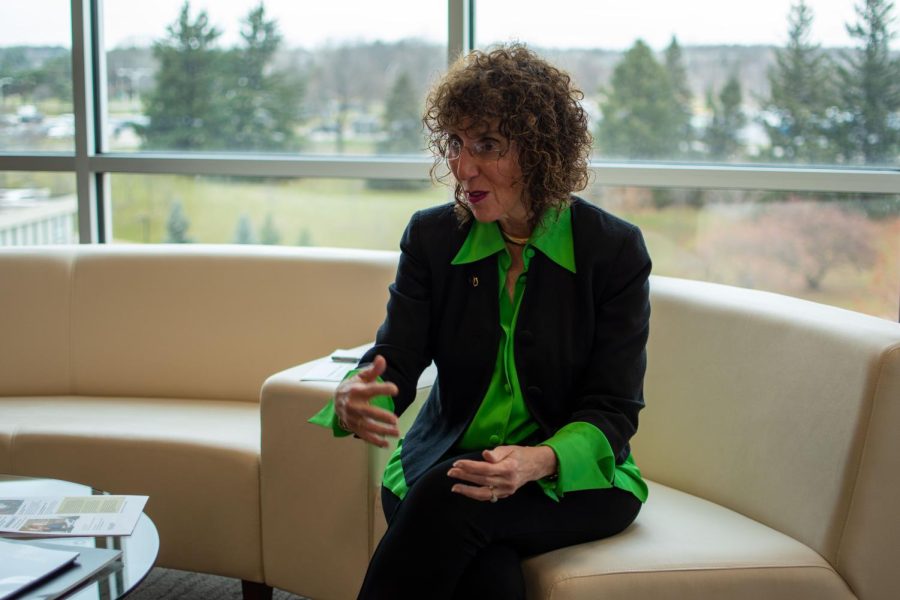
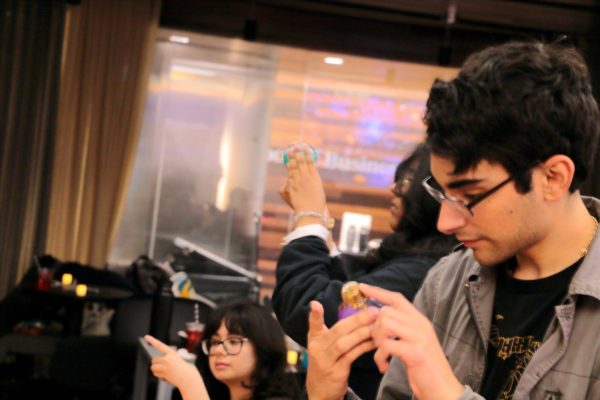
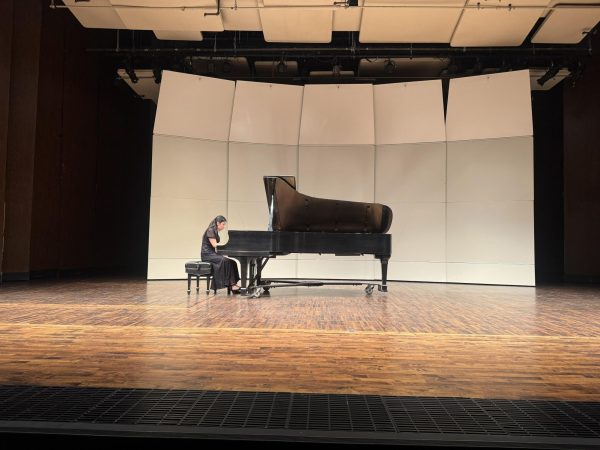
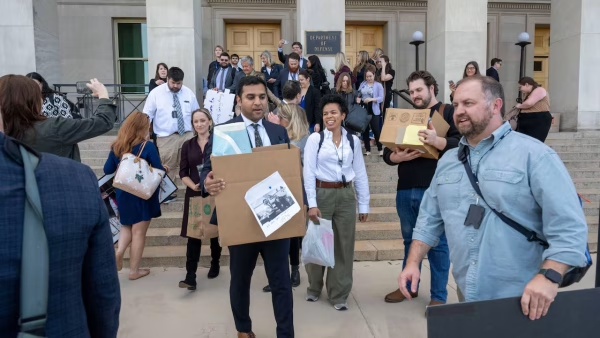
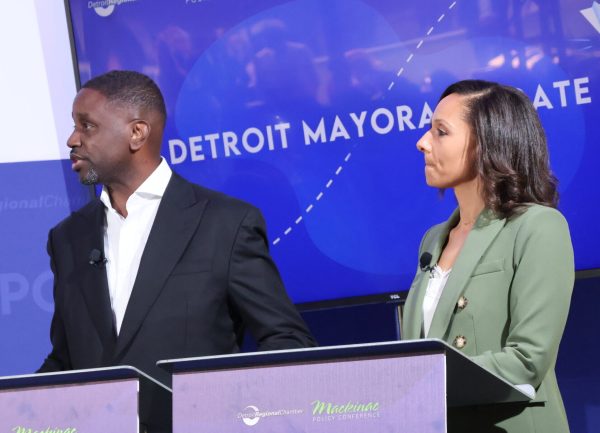

Angry student • Nov 23, 2022 at 10:43 AM
Ora says we should see if the East Campus proposals are beneficial, but beneficial for who? They *might* bring in revenue, but where will that revenue go? To boost the regular $40,000 bonuses for administrations? So many people in the OU community have rejected this project entirely and it’s so sad to see Ora only placate. It’s so clear they just don’t care about student opinion and will completely ignore us if it suits them.
OU student • Nov 23, 2022 at 10:40 AM
Almost ~4000 people have signed the petition saying they want NO development regardless of the proposals offered. Ora saying she is an “evidence-based” person is just a cop out so she doesn’t have to take a clearly unpopular stance, its cowardice. If she stood with STUDENTS (you know, the people that pay her paychecks), she would oppose the project. Private development on east campus is unacceptable.
Student • Nov 22, 2022 at 7:33 PM
As a prospective student of OU, the east campus project is extremely concerning. Green space is something that makes OU unique. One of the main reasons I enjoy OU is because it has a distinct campus-feel, unlike many other universities that have more of a city-feel. Turning part of campus into a commercialized space would totally ruin that. If they go through with this development I really don’t think it would help enrollment, as they would be destroying elements of the university that make it unique.
Anonymous • Nov 22, 2022 at 7:16 PM
How are we supposed to be grateful this season when our own President is valuing the money that ECD would create over our safety and well-being? When students have been told that she is remaining neutral on this subject, I hardly see neutrality in this interview. It is clear that she will support one of the proposals and the plan will proceed even though students strongly oppose. Disappointing.
WhatAJoke • Nov 22, 2022 at 6:54 PM
I have to laugh…. How dare she!?! She has a medical background. She has no right to tell faculty with degrees in environmental science and sustainability, the are incorrect to make judgements. Ora, if you trusted the science you would be listening to the scientists. A medical degree does not give you the right to say when there is enough “evidence” to formulate a conclusion on sustainability. This is why we are in a climate crisis. You can’t believe in science, if you don’t follow the science in the field. This is the most absurd thing I’ve heard all month, please cancel this project and stop the deception.
Anonymous • Nov 22, 2022 at 4:33 PM
Ora might have a scientific credential, but she’s no scientist. She’s a business woman. That much is obvious to anyone paying attention.
Dr. Professor • Nov 22, 2022 at 4:20 PM
I’m a scientist and I happily signed the petition. I guess Ora doesn’t have a monopoly over what constitutes good behavior from us.
anon • Nov 22, 2022 at 1:40 PM
Total vacuum, as always. In the meantime, the number of OU employees, mostly administrators, paid $200k/y and more doubled from FY 2022 to FY 2023, while petty cuts are being imposed on departments (on the pretext of CRISIS! DOOM!! APOCALYPSE!!!) and programs that actually do help faculty and students. Needless to say that faculty were treated like in the latest round of negotiations. Of course, per Pescovitz’s exhortation, we should be grateful.